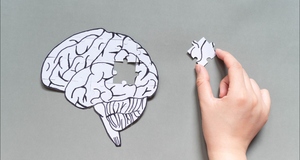The Lockean Memory Theory of Personal Identity: Definition, Objection, Response
By
2010, Vol. 2 No. 08 | pg. 1/1
IN THIS ARTICLE
KEYWORDS
For centuries philosophers have struggled to define personal identity. In his 1690 work An Essay Concering Human Understanding, John Locke proposes that one's personal identity extends only so far as their own consciousness. The connection between consciousness and memory in Locke’s theory has earned it the title of the "memory theory of personal identity." Despite criticism, Locke’s memory theory of personal identity is a prominent subject of discussion among modern philosophical circles. Defining Lockean Memory TheoryIn the history of discourse on the subject of the self and personal identity, conflicting viewpoints have arisen. Some suggest that the self is simply the mind which thinks; others posit that the self is identifiable with one’s body; still others claim that to even conjure an idea of the self is an impossibility. In his Essay, Locke suggests that the self is “a thinking intelligent being, that has reason and reflection, and can consider itself as itself, the same thinking thing, in different times and places” and continues to define personal identity simply as “the sameness of a rational being” (Locke). So long as one is the same self, the same rational being, one has the same personal identity. Given this assertion, any change in the self reflects a change in personal identity, and any change in personal identity therefore implies that the self has changed. Locke goes on to suggest that one’s personal identity extends only so far as ones consciousness. He offers the argument that because in order to be a self, one must be a thinking thing, and that because “consciousness always accompanies thinking” (Locke), the self with which one personally identifies extends and persists only so far as ones consciousness. The consciousness Locke refers to can be equated with memory.This assumption is supported by Locke’s assertion that, “as far as [a] consciousness can be extended backwards to any past action or thought, so far reaches the identity of that person; it is the same self now as it was then; and it is by the same self with this present one that now reflects on it, that that action was done” (Locke). More explicitly stated, if one can remember some experience, Locke’s says that one in fact had that experience. It is by this reasoning that Locke arrives at the most controversial portion of his theory which suggests that the converse of the previous argument is true: if one cannot remember some experience, then one did not have that experience. Memory is therefore, according to Locke, a necessary condition of personal identity. Referring to states of interrupted consciousness or forgetfulness, Locke claims that, “in all these cases, our consciousness being interrupted, and we losing sight of our past selves, doubts are raised whether we are the same thinking thing” (Locke). An abridged version of Locke’s memory theory of personal identity would therefore conclude that memory is both a necessary and sufficient condition of self, and, therein, personal identity. Reid’s Objection: The Brave Officer ParadoxLocke’s theory has weathered centuries of scrutiny, debate, and rejection by both his contemporaries and modern philosophers, many of whom grapple with the conclusion that memory is a necessary condition of personal identity. Critic John Perry offers that the “sufficient condition implied is plausible: if I really can remember going to the store yesterday, then I must have gone to the store” (Perry), but argues of the necessary condition that it is, “much too strong. […] That I cannot remember going to the store yesterday does not mean that I did not go. Forgetting, even beyond the possibility of recall, is possible” (Perry). Perry’s criticism is inherently sound, but is easily rejected by the memory theorist who would suggest that the self, or person, who went to the store is indeed a different self than he who cannot now remember that experience. However, an earlier critic, Thomas Reid, proposes a sound argument which supports Perry’s objection and has fared well against the responses of memory theorists. Reid’s objection is commonly referred to as “The Brave Officer Paradox” and is outlined in his essay Of Mr. Locke’s Account of Our Personal Identity: Suppose a brave officer to have been flogged when a boy at school for robbing an orchard, to have taken a standard from the enemy in his first campaign, and to have been made a general in advanced life; suppose, also, which must be admitted to be possible, that, when he took the standard, he was conscious of his having been flogged at school, and that, when made a general, he was conscious of his taking the standard but had absolutely lost consciousness of the flogging. (Reid) Reid’s objection invokes the logical axiom of transitivity which holds that if A is equal to B, and B is equal to C, then A is equal to C, applying it here to identity. He follows Locke’s logic insofar as that he suggests that, by Locke’s theory, the officer is the same person as he who took the standard, given his memory of having taken that standard, and he who took the standard is the same person as he who was flogged, given his memory of having been flogged. Reid has demonstrated that transitivity allows for the officer and the boy who was flogged to share a personal identity despite that the officer has lost all memory of his having been flogged. The fact that Reid arrived at this conclusion using Locke’s theory demonstrates that Locke’s denial of the general and the boy as the same person ignores the transitive property and is therefore absurd. Response of a Memory Theorist: H.P. GriceReid’s paradox brings up an absurdity in Locke’s memory theory which the theory can’t simply ignore. Without some circumventing stipulation of Locke’s theory or an amendment to it, the memory theory of personal identity seems to fail. However, memory theorist H.P. Grice offers an amendment to Locke’s theory which recognizes and avoids Reid’s counterexample. In his essay Personal Identity, Grice proposes the introduction of a new term, a total temporary state (t.t.s.), which he states is, “composed of all the experiences any one person is having at a given time” (Grice), to fix the problem of transitivity. One’s personal identity is composed of a series of total temporary states which belong to the one and the same self, or person. Grice’s proposed application of his term total temporary state to patch the issue of transitivity raised by Reid’s paradox follows: In a series of total temporary states belonging to one person, every t.t.s which is a member of that series will contain as an element a memory of some experience which is an element in the temporally preceding member of the series; in a series of total temporary states not belonging to one person, this will not be the case. (Grice) What Grice proposes is that each total temporary state of a single self or person contains some element, a remembered experience or impression, shared by the t.t.s. preceding it in time also belonging to that person, explicitly stating that this will not be true of total temporary states of different people. Evaluating the ResponseMost will find Perry’s claim against Locke’s memory theory a logical and true statement; that is that simply because one cannot remember some experience does not mean that it was not oneself who experienced it. Most people would be unwilling to believe that, as Locke suggests, they do not share a personal identity with themselves as toddlers simply because they cannot remember the experience of toddlerhood. The primary objection deals with Locke’s assertion that memory is a necessary condition for personal identity, and Reid’s paradox proves that this objection is based on sound logic. Locke’s theory cannot conjure a worthwhile response to Reid’s paradox without amendment. Grice’s response is the ideal solution because it preserves the original stipulations of Locke’s theory that memory is both a necessary and sufficient condition of personal identity while amending those stipulations to account for its transitive nature. Memory is necessary only insofar as the memory of a particular experience is contained within at least one total temporary state in the stream of t.t.s.’s belonging to a particular person. This stipulation successfully satisfies critics who question whether or not forgetting an experience inherently means one did not have that experience. This completely avoids the problem of Reid’s paradox by suggesting that the total temporary state of the officer contains in it some element (memory) also contained within the t.t.s. of the soldier who took the standard, and that the t.t.s. of that soldier contains in it some element (memory) also contained within the t.t.s. of the boy who was flogged, and that this is sufficient to say that this series of total temporary states belongs to one person. Grice is explicitly stating that if A is equal to B, and B is equal to C, A is equal to C, or, in terms similar to his, if t.t.s-general is equal to t.t.s.-soldier, and t.t.s.-soldier is equal to t.t.s-boy, then t.t.s.-general is equal to t.t.s.-boy. This argument is as sound as an argument can be, and is an adequate response to Reid. Grice’s amendment is also brilliant in that it clarifies that memory is sufficient for personal identity only insofar as the total temporary states in a stream share some transitive element. He stipulates that the transitivity of total temporary states will not hold true if the t.t.s.’s in question do not belong to the same person. This and his assertion that, “one can only remember one’s own experiences” (Grice), protects the memory theory from critics who cite the false memory effect as a counterexample to Locke’s theory. Grice is right to conclude that the illusion of having experienced is not equivalent with actually having experienced. His explicit statement of this further adds to his response’s credibility. Though Grice’s response is sound, it still fails to provide an adequate definition for personal identity. His amendment assesses personal identity in a Humean fashion, concluding that it is more like a bundle of interconnecting experiences and impressions than it is an independent substance. However, because Grice’s amendment holds soundly against Reid’s paradox, one must conclude that his response to the transitive objection is adequate and acceptable. ReferencesGrice, H.P. "Personal Identity." Perry, John. Personal Identity. Berkeley: University of California Press, 2008. 73-95. Locke, John. "An Essay Concerning Human Understanding." Perry, John. Personal Identity. Berkeley: University of California Press, 2008. 33-52. Perry, John. "Personal Identity, Memory, and the Problem of Circularity." Perry, John. Personal Identity. Berkeley: University of California Press, 2008. 136-155. Reid, Thomas. "Of Mr. Locke's Account of Our Personal Identity." Perry, John. Personal Identity. Berkeley: University of California Press, 2008. 113-118. Suggested Reading from Inquiries Journal
Inquiries Journal provides undergraduate and graduate students around the world a platform for the wide dissemination of academic work over a range of core disciplines. Representing the work of students from hundreds of institutions around the globe, Inquiries Journal's large database of academic articles is completely free. Learn more | Blog | Submit Latest in Philosophy |


















